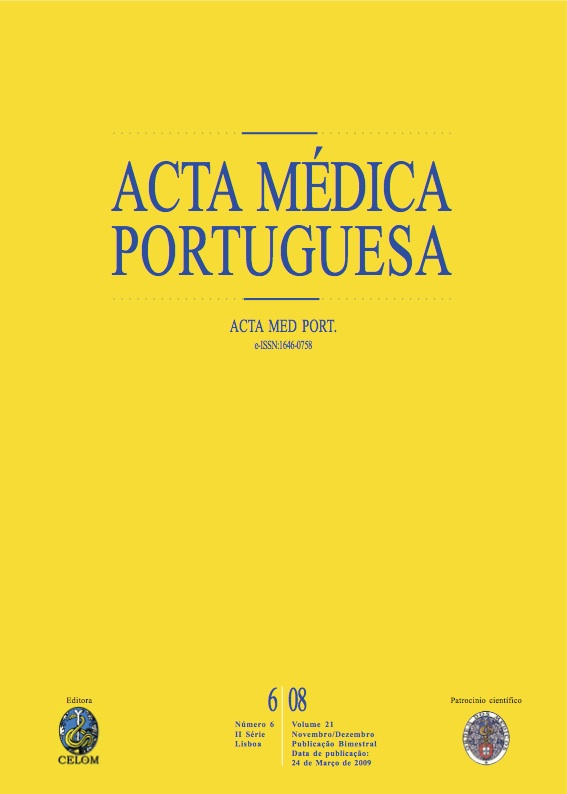Medicina evolucionária: o futuro olhando o pasado.
DOI:
https://doi.org/10.20344/amp.818Resumo
Evolutionary medicine is an emergent basic science that offers new and varied perspectives to the comprehension of the human health and disease, considering them as a result of a gap between our modern lives and the environment where human beings evolve. This work's goals are to understand the importance of the evolutionary theories on concepts of health and disease, providing a new insight on medicine investigation. This bibliography review is based on Medline and PsycINFO articles research between 1996 and 2007 about review and experimental studies published in English, using the key words evolutionary and medicine, psychiatry, psychology, behaviour, health, disease, gene. There were selected forty-five articles based on and with special interest on the authors' practice. There were also consulted some allusive books. The present human genome and phenotypes are essentially Palaeolithic ones: they are not adapted to the modern life style, thus favouring the so called diseases of civilization. Fitting evolutionary strategies, apparently protective ones, when excessive, are the core syndromes of many emotional disruptive behaviours and diseases. Having the stone age's genes, we are obliged to live in the space age. With the evolutionary approach, postmodern medicine is detecting better the vulnerabilities, restrictions, biases, adaptations and maladaptations of human body, its actual diseases and its preventions and treatment.Downloads
Downloads
Como Citar
Edição
Secção
Licença
Todos os artigos publicados na AMP são de acesso aberto e cumprem os requisitos das agências de financiamento ou instituições académicas. Relativamente à utilização por terceiros a AMP rege-se pelos termos da licença Creative Commons ‘Atribuição – Uso Não-Comercial – (CC-BY-NC)’.
É da responsabilidade do autor obter permissão para reproduzir figuras, tabelas, etc., de outras publicações. Após a aceitação de um artigo, os autores serão convidados a preencher uma “Declaração de Responsabilidade Autoral e Partilha de Direitos de Autor “(http://www.actamedicaportuguesa.com/info/AMP-NormasPublicacao.pdf) e a “Declaração de Potenciais Conflitos de Interesse” (http://www.icmje.org/conflicts-of-interest) do ICMJE. Será enviado um e-mail ao autor correspondente, confirmando a receção do manuscrito.
Após a publicação, os autores ficam autorizados a disponibilizar os seus artigos em repositórios das suas instituições de origem, desde que mencionem sempre onde foram publicados e de acordo com a licença Creative Commons









